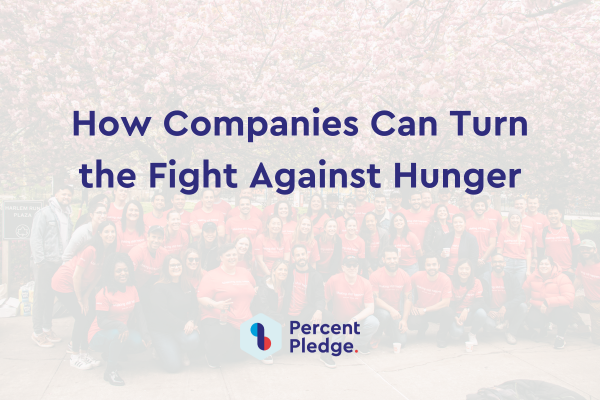In today's dynamic workplace, companies are constantly seeking ways to enhance employee engagement and build a positive organizational culture. One effective strategy gaining traction is volunteer time off (VTO). Dive into the fundamentals of VTO, exploring its definition, how it works, and why it is becoming an essential part of modern HR policies.
The basics of volunteer time off (VTO)
Definition: Volunteer time off (VTO) is a company policy that allows employees to take paid or unpaid leave specifically to volunteer in their communities. This type of leave is designed to encourage and support employees in contributing to social and community causes, aligning their personal values with their professional lives.
How VTO differs from traditional time off:
- Purpose: Traditional time off, such as vacation or sick leave, is intended for personal rest, recovery, or handling private matters. In contrast, VTO is explicitly for volunteer activities.
- Structure: VTO policies often include specific guidelines about the types of volunteer work that qualify, the amount of time employees can take, and any reporting requirements.
How volunteer time off (VTO) works
Eligibility and application process:
- Eligibility criteria: Companies typically define which employees are eligible for VTO based on factors such as employment status (full-time, part-time, etc.) and tenure.
- Application process: Employees usually need to submit a request outlining their intended volunteer activity, the organization they will volunteer with, and the dates they plan to take VTO. This request often requires approval from their manager or HR department.
Types of volunteer activities:
- Community service: Working at local shelters, food banks, or community centers.
- Environmental efforts: Participating in clean-up drives, tree planting, or conservation projects.
- Educational support: Tutoring students, mentoring youth, or assisting in schools.
- Healthcare and wellness: Volunteering at hospitals, health clinics, or wellness programs.
Tracking and reporting: To ensure accountability and measure impact, companies often implement tracking and reporting systems for VTO. Employees may be required to log their volunteer hours and provide feedback on their experiences. This data helps organizations understand the effectiveness of their VTO programs and showcase their social responsibility efforts.

Why volunteer time off (VTO) is important
Benefits for companies:
- Enhanced corporate reputation: Companies that actively support community involvement are seen as socially responsible, which can improve their brand image and attract top talent.
- Increased employee engagement: Employees who participate in VTO programs often feel more connected to their company and motivated in their roles.
- Positive workplace culture: Encouraging volunteerism fosters a culture of giving and collaboration, which can enhance team dynamics and employee satisfaction.
Benefits for employees:
- Personal fulfillment: Volunteering provides employees with a sense of purpose and fulfillment, contributing to their overall well-being.
- Skill development: Volunteering can help employees develop new skills and gain experiences that are beneficial both personally and professionally.
- Stronger connection to company values: Participating in company-sponsored volunteer activities reinforces employees' alignment with their employer's values and mission.
Key takeaways:
- VTO defined: Volunteer time off is a policy that allows employees to take leave to volunteer in their communities.
- Distinct purpose: Unlike traditional time off, VTO is focused on social responsibility and community engagement.
- Structured process: VTO policies include eligibility criteria, an application process, and guidelines for qualifying activities.
- Significant benefits: Both companies and employees benefit from VTO through enhanced engagement, skill development, and improved corporate reputation.
Understanding and implementing volunteer time off can transform your workplace, creating a more engaged and socially responsible workforce. By supporting employees' desire to give back, companies can foster a positive and inclusive culture that benefits everyone involved.




.png)
